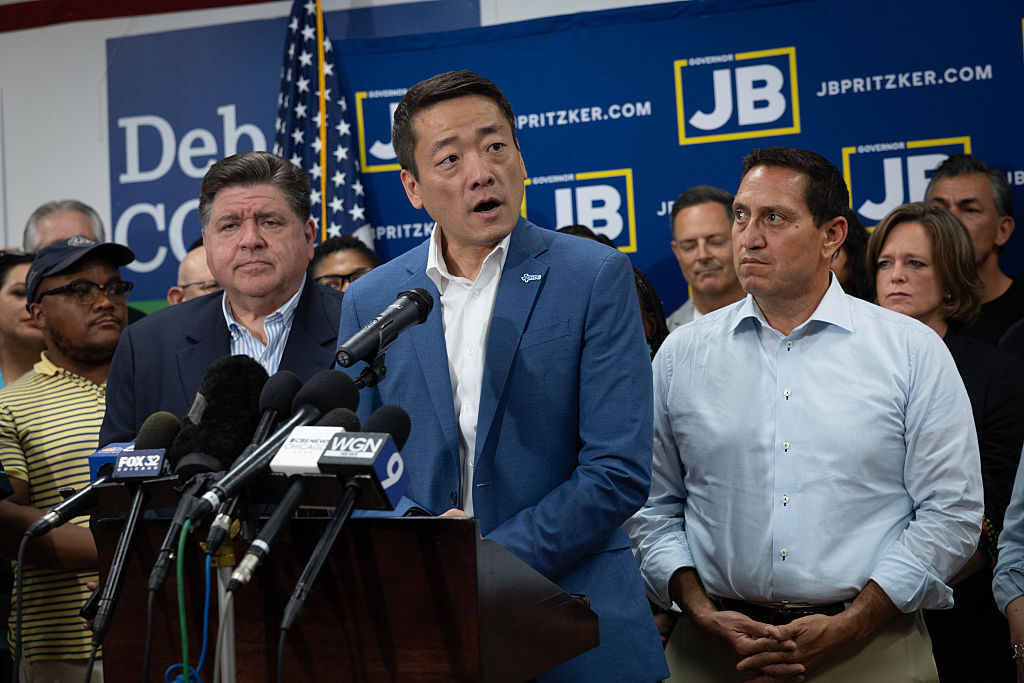Texas Democrats have relocated the fight to Illinois and New York, building a public case that this redistricting crisis isn’t a local quirk but a dawning national crisis. At stake, they’re arguing, is whether the rules can be rewritten state by state to manufacture Republican majorities in Washington. So far, national Democrats are taking the crisis seriously, but it’s unclear how they will respond. Will we descend into a tit-for-tat redistricting war between red states and blue states with high-profile partisans like Donald Trump and Gavin Newsom as their proxies? Or will we move toward a system buttressed by pro-democracy interventions like independent redistricting boards? The outcome depends greatly on how organizations, labor unions, and regular people organize at this moment.
The labor movement seems to recognize both the opportunity and the responsibility inherent in the current crisis. State AFL-CIO bodies from Texas to California to New York released a joint statement calling the Republican coup what it is: a coordinated attempt to disempower working people. Other labor unions have rightly joined in, claiming the redistricting fight as a working-class fight. Grassroots groups, meanwhile, have begun to stage protests outside of the Texas State Capitol in support of the Democratic walkout.
If the quorum break fizzles and becomes memory instead of momentum, Republicans will only be emboldened to escalate their strategy, and our country will race closer to full-on authoritarianism. But if students, workers, tenants, and local organizers join in to name redistricting as their fight too, that will keep the pressure on. Right now, this issue is strictly an electoral standoff. We need to bring it down to the ground level, generalizing the popular understanding that our democratic rights and working-class power are at stake.



Both of yall stop slapfighting. You’re both arguing specific points that don’t necessarily contradict and there’s room for nuance on either side. Provide a source and remember the human.
I would love to provide a source but going off this particular user’s history it’s likely they will not accept it in good faith. If it is actually being requested I would be happy to oblige.
You’re right, it would be nice if we could refrain from juvenile namecalling or whatabouting.
You are correct there is nuance involving when party platforms switched, but not that the platforms switched.
For my part the only nuance I was provided by my education was “i cannot tell a lie all men are created equal” so I’d like to see what were the like specific topics that switched. Like, it’s not unreasonable to to be suspicious of the idea that the democrats just stopped being racist after having a whole civil war about slavery, if I even have my timeline right off the top of my head. And frankly, I doubt it was as simple as “they just switched sides,” like, why? How? How tf does that even happen? I’ve heard it said before like a lot actually but- Genuine curiosity, if you have a non-american-imperialist source explaining this party switch i’d actually like to read it.
Racism is too large a problem in the US to be constrained to a single political party unfortunately, and at no point have I defended the Democrats so I don’t think what I’ve been saying and your feelings of it conflict.
The party platforms switched (largely) due to the platform FDR ran on. Prior to that point, Democrat platform was centered around smaller, limited government.
https://factmyth.com/factoids/democrats-and-republicans-switched-platforms/
However it wasn’t as clean as a single point in time you could point at and say “here, and these policies”. There was no handing over of anything and it wasn’t a cut and dry swap.
This is why a lot of Republicans will argue that the swap didn’t happen, because it was more like an evolution of stances over time with a few big notable shakeups and not really possible to pinpoint.
The source I provided above goes into some key points in history that serve as examples of how the parties switched platforms if that helps to understand it better.
One thing is clear though: the party of Lincoln and today’s Republican Party are similar only in name. For the most part, the same is true for Democrats. They are no longer the same party they were in the time period the other user continues to mention.